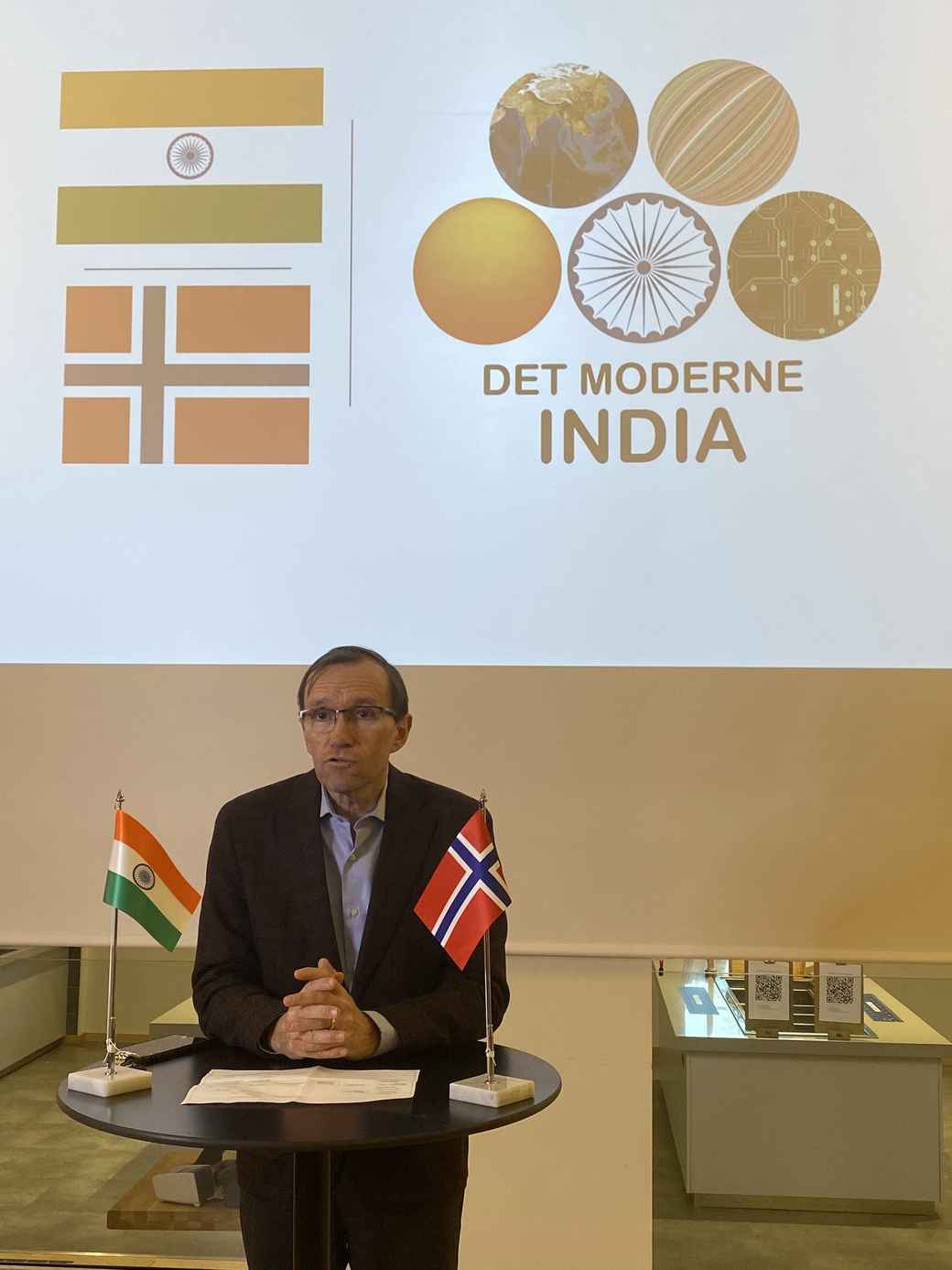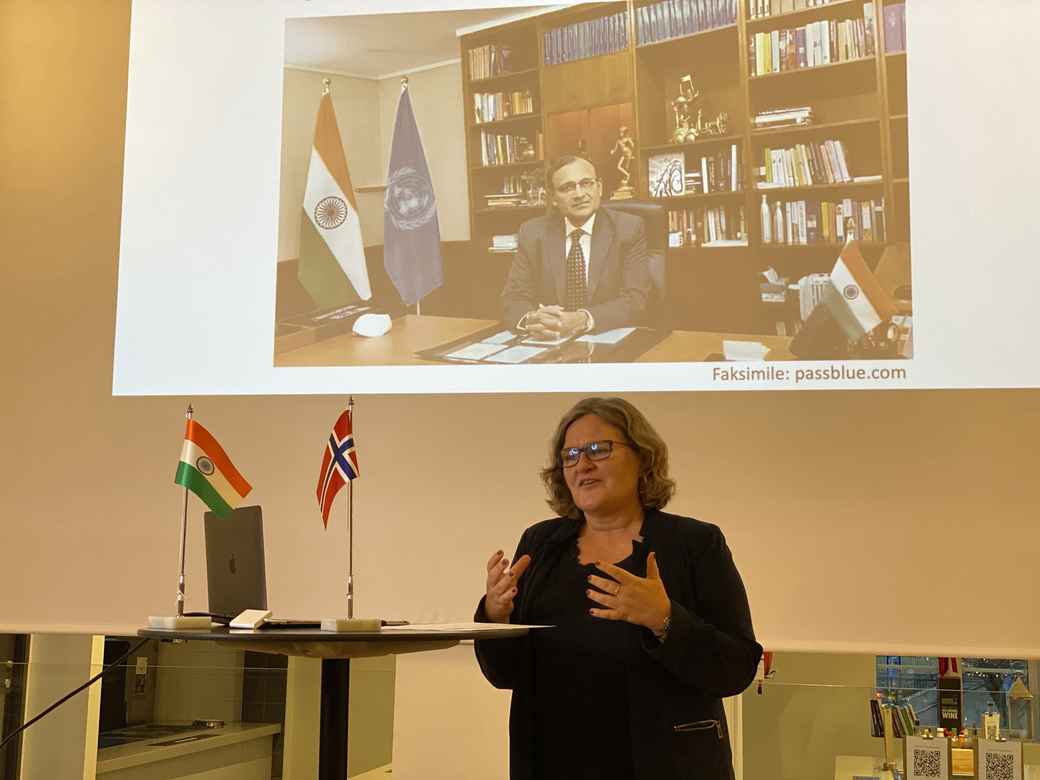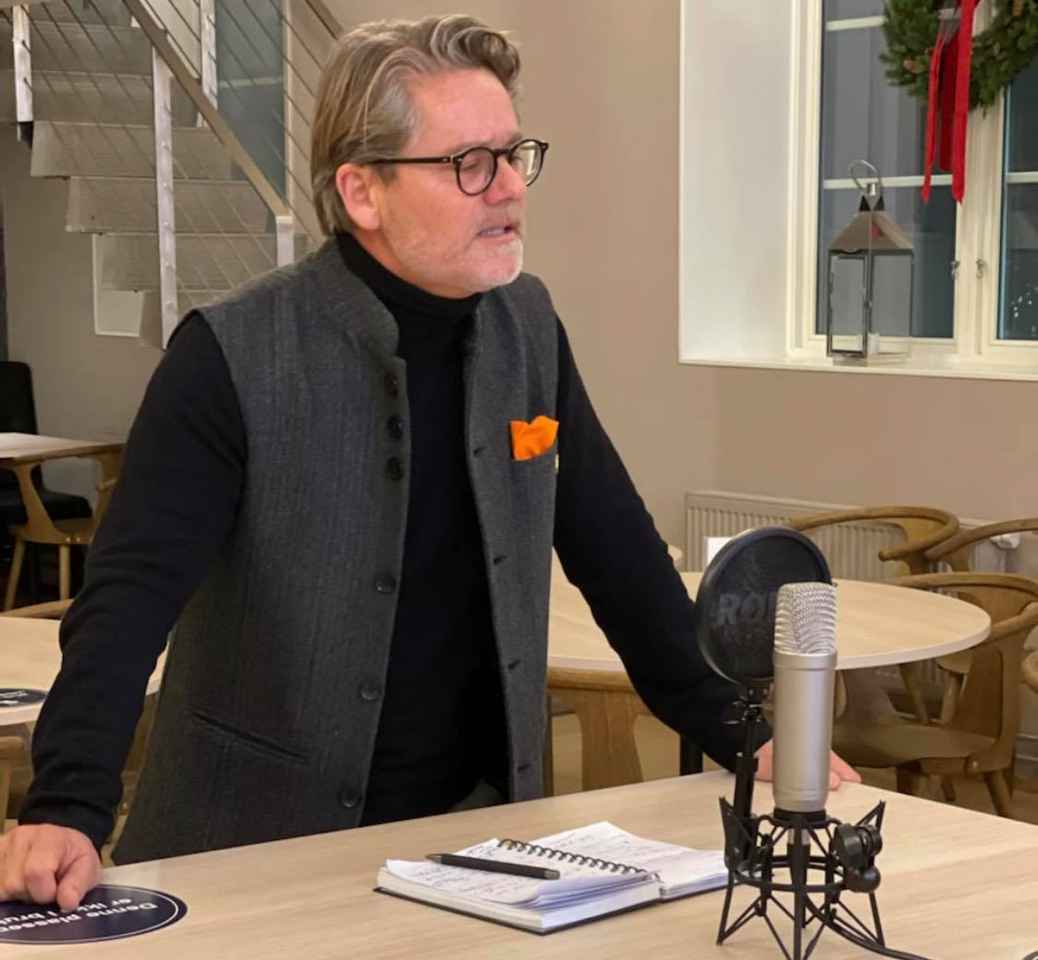| A month from now, on 1 st January 2021, Norway and India will both take a seat for two years as elected members of the United Nations Security Council (UNSC) – the most important and powerful international decision-making body in the world. For Det Moderne India , with our vision and mission to promote the relationship between Norway and India, including the two countries’ collaboration on the global stage, this is an opportunity not to be missed. We invited three of Norway’s most prominent experts on this subject to a seminar in Oslo. Mr. Espen Barth Eide (MP-Ap), a former Minister of Foreign Affairs, Minister of Defence and Managing Director at the World Economic Forum, as well as former Head of the UN Programme at Norsk Utenrikspolitisk Insitutt (NUPI), was our keynote speaker. He was followed by Ms. Tove Gravdal, a journalist who served as press attaché at Norway’s Permanent Mission to the United Nations in New York the last time the country was a member of the Council. Tove recently published a highly acclaimed book on the UNSC and Norway. Our final speaker was Ole Jacob Sending, Research Director at NUPI and an internationally recognized expert on global governance and multilateral cooperation. The three perspectives were brought together in a conversation between Espen Barth Eide and, Mr. Thoralf Stenvold, a Norwegian diplomat with more than 25 years of experience from China, Geneva, Oslo, New York and India, including almost 20 years working with and within the United Nations and other multilateral organizations.  Espen B. Eide  Tove Gravdal  Ole Jakob Sending All participants agreed that membership of the Security Council is an opportunity not to be missed for Norway and India alike, also with regard to cooperation between the two democracies. They did not underplay the challenges, however, both with regard to the dynamic nature of the Council’s work on issues of the highest importance for peace and security, as well as dealing with the P5* and dilemmas in this regard. Global megatrends like the rise of China and the rest of Asia, cyber warfare, climate change, the importance of business and the increasing inequality between the rich and the rest were among the subjects discussed as important to the UNSC. And of course the Covid-19 pandemic was ever present as a backdrop to the meeting, not only in the content of the speeches, but also in the meeting format not allowing the participants to be physically present in the same room at the same time. |
 Thoralf StenvoldHere is the link to the summary of the seminar. Any comments would be highly welcome! *P5 refers to the five permanent members of the UN Security Council: The United States, the United Kingdom, France, Russia and the People’s Republic of China. These five countries are not only permanent members of the Council. With this status comes the power of veto: Any one of the P5 countries can block a decision by the Council. |
What happens when you put two global guys - one from metropolitan New Delhi, the other from a village in the North of Norway - on the same rooftop in the Barcode of Oslo?
They solve all the world’s problems. At least for a moment. That’s what occurred the other day, when Det Moderne India invited Sony Kapoor, the re-known thinker and international adviser on economic and political affairs, for a chat with Thoralf Stenvold. Their subject was sustainability.
The two gentlemen, both alumni of the London School of Economics with truly transnational careers, touched upon India’s transformation, the Nordic model, climate change, inequality and global governance, including an eye to the UN Security Council, where both their countries will take a seat come next year.
Here is what happened: